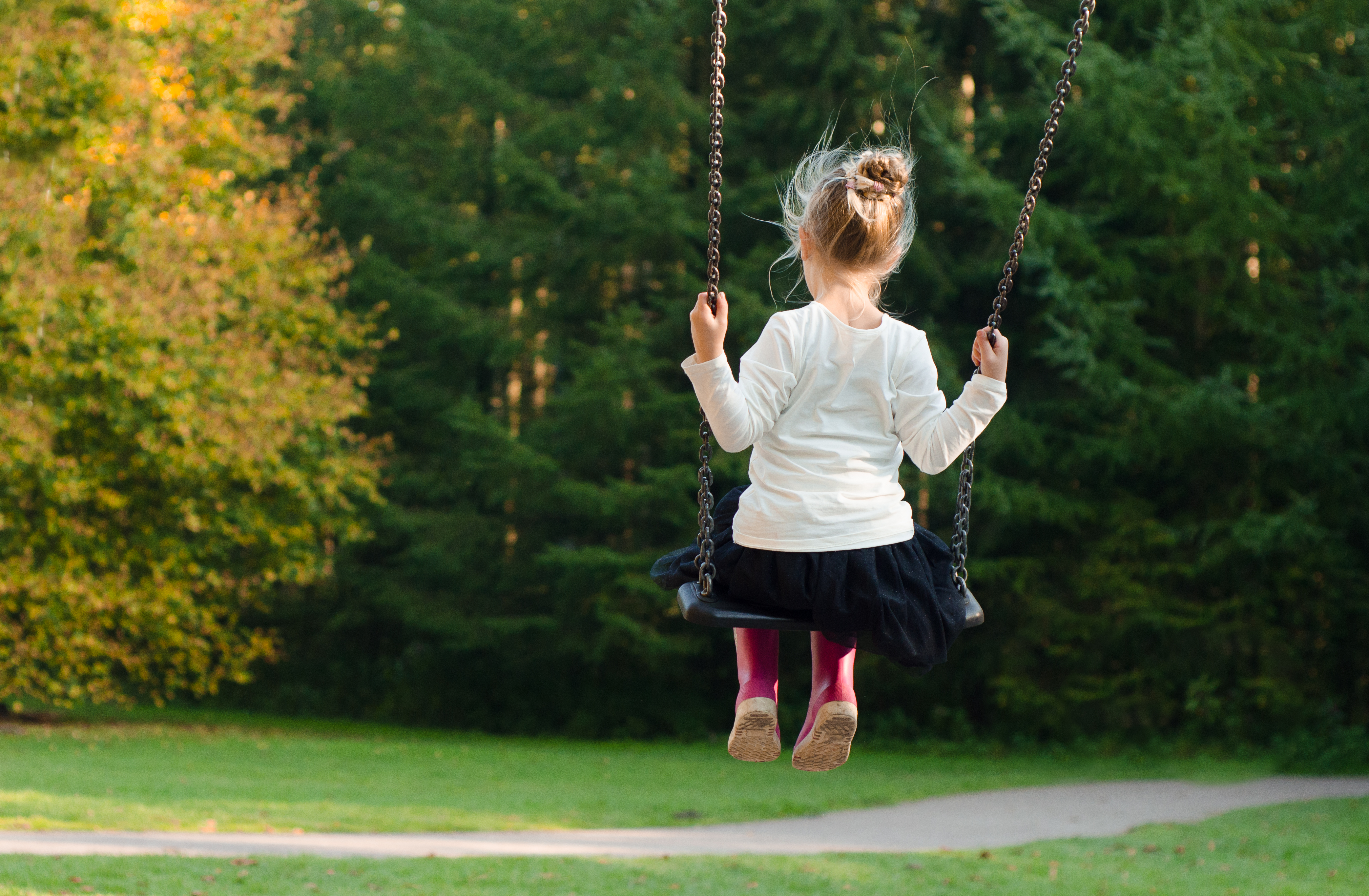
When my oldest daughter was four, she was prescribed leg braces similar to those worn by children with cerebral palsy. Certain activities were beyond her physical development, yet because she only wore the braces at night, she looked like any other four-year old at the park.
Whenever she climbed a piece of playground equipment and couldn’t climb down, I would lift her instead of shouting words of encouragement. I looked like the epitome of a helicopter parent, swooping in to save the day when things got just a teeny bit difficult.
Other parents inevitably noticed. I saw more than a few eye rolls and disapproving stares, which I ignored. If a physical therapist is working one-on-one with your kid just so she can climb down stairs, you tend to pluck her from the top of the monkey bars in a hurry.
I get it. I really do. My parental tendencies lean toward fostering independence whenever possible. It’s not that I don’t challenge my daughter. I just challenge her in ways that most parents take for granted.
While other parents were encouraging their four-year-olds to ride bicycles and push themselves on the swing, I was strapping medical equipment onto my kid’s legs each night just so she could walk on her heels. Imagine drifting off to sleep in a pair of too-tight plastic boots with the sensation of someone pushing against your feet. She did it, night after night, in part because I pushed her. Ok, I bribed her with toys from the dollar store. But behind the promise of glow sticks and plastic bead necklaces was a mom pulling the straps of those boots ever tighter, saying, “I know it hurts now, but this will make you stronger.”

My daughter’s stylish braces
Many children face invisible challenges. From behavioral issues to physical impairments, the path these kids travel to reach developmental milestones requires immense effort — often by the entire family.
So yes, that is my daughter crying to be rescued from the second rung of a ladder. That is me running to her. But she is brave in ways others cannot see, and I am challenging her in ways they cannot comprehend.
As my daughter has continued to develop certain skills, I have continued to push her by pulling back my support. My husband and I differ on this point. Now that she’s nearly seven, I will let our daughter dissolve into tears as she struggles to dress in the morning. I will untwist clothing, hand it back, and tell her to start again. If she needs to take a minute to sob out her frustrations first, I’ll wait. But I won’t dress her. My husband, on the other hand, will.
“It’s easier to just help her,” he says. “I don’t like to see her upset.”
Last time I checked, I wasn’t a sadist. I don’t enjoy watching her become tangled in her shirt, soaking the fabric in snot and tears. But I stand, morning after morning, and wait because I know she can do it, eventually.
How? Because she does it when my husband isn’t home. I may hear a shout for help or a foot stomp on occasion, but at the end of it, she’s wearing clothes, and I didn’t put them on her.
“Are you going to dress her in high school?” I’ll huff whenever I him shimmy a shirt over her head.
I believe making things easier for her now could make life harder for her later. This much, the parents in the park and I have in common. But like every parent, I must constantly decide when to push my daughter and when to offer support.
Though we are parents to the same child, my husband and I have different tipping points. This, more than anything, has taught me to hold my judgment of other parents. Because the decision to help your child by helping them or to help your child by not helping them is perhaps one of the most profoundly personal choices we make as parents.
Kathryn Hively
Latest posts by Kathryn Hively (see all)
- Where Have All the Little Kids Gone? - March 30, 2023
- Practicing Nonjudgmental Parenting in the Post-Covid World - February 14, 2022
- Generation COVID - June 17, 2021


Love this piece, Kathryn! Wonderfully written, wise, and moving. ??
I can so relate to this. My kids have “behavioral” challenges and I have learned that I don’t know what other kids stories are. I am not the expert in other people’s kids, so I don’t judge or assume their intentions. I’ve been on the receiving end of stares and comments, and it isn’t something I’d do to anyone else. I worked in human services for a long time with parents to children with various abilities and I heard the same thing from most of the parents, “the quickest way to disable your child is to do everything for them.” You know your child’s strengths, you wouldn’t push her if you didn’t know in your heart she is capable. So as much as you feel like you’re being tough, you are giving her the best possible chance at self sufficiency. It’s hard! But you are doing a fabulous job mama!!! xo
Thank you so much, Roxanne! I really appreciate the words of encouragement!